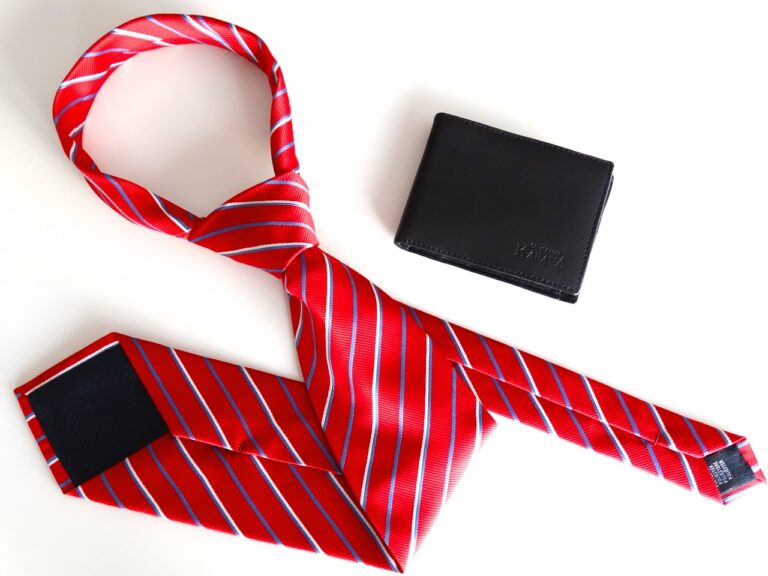Business Review: Luxury Fashion Brands’ Strategies for E-commerce Expansion
all panal.com, laser247 com, yalo247:Business Review: Luxury Fashion Brands’ Strategies for E-commerce Expansion
Luxury fashion brands have been slow to embrace e-commerce, but in recent years, many prestigious names in the industry have started to focus on expanding their online presence. With the rise of digital shopping and the growing demand for convenience and accessibility, luxury brands are beginning to realize the importance of having a strong e-commerce strategy in place.
In this article, we will explore the different strategies that luxury fashion brands are employing to expand their e-commerce offerings and stay ahead of the competition in the ever-evolving digital landscape.
The Rise of E-commerce in Luxury Fashion
The luxury fashion industry has traditionally been known for its exclusive, high-end retail experiences. However, as online shopping continues to grow in popularity, luxury brands have had to adapt to meet the changing needs and expectations of consumers.
In recent years, e-commerce has become a key focus for many luxury fashion brands, with online sales accounting for a significant portion of their revenue. According to a report by McKinsey, online sales of luxury goods are expected to triple by 2025, reaching a value of $112 billion.
With such significant growth potential, luxury fashion brands are investing heavily in their e-commerce strategies to capitalize on the increasing demand for luxury goods online.
Strategies for E-commerce Expansion
1. Building a Strong Online Presence
One of the first steps luxury fashion brands are taking to expand their e-commerce offerings is building a strong online presence. This includes investing in high-quality websites, mobile apps, and social media platforms to engage with customers and showcase their products in a visually appealing way.
Luxury brands are also focusing on creating immersive online shopping experiences that replicate the exclusive feel of their physical stores. This includes incorporating features such as virtual try-on tools, personal stylists, and interactive product videos to make the online shopping experience more personalized and engaging.
2. Partnering with E-commerce Platforms
Another strategy that luxury fashion brands are using to expand their e-commerce presence is partnering with established e-commerce platforms such as Farfetch, Net-a-Porter, and MatchesFashion. By joining forces with these platforms, luxury brands can reach a wider audience of online shoppers and benefit from their expertise in e-commerce operations.
These partnerships also provide luxury brands with access to valuable data and insights that can help them better understand their customers’ preferences and shopping behaviors, allowing them to tailor their e-commerce strategies accordingly.
3. Embracing Omnichannel Retail
Omnichannel retail is another key strategy that luxury fashion brands are using to expand their e-commerce offerings. This approach involves integrating online and offline channels to provide a seamless shopping experience for customers across all touchpoints.
Luxury brands are combining their physical stores with their online platforms to create a unified shopping experience that allows customers to browse, purchase, and return products both in-store and online. This omnichannel approach not only enhances the customer experience but also helps luxury brands drive sales and build brand loyalty.
4. Investing in Technology
Luxury fashion brands are also investing in technology to enhance their e-commerce offerings and stay ahead of the competition. This includes implementing AI-powered tools for personalized recommendations, virtual fitting rooms for online shoppers, and AR/VR experiences to bring their products to life in a digital environment.
By leveraging the latest technology, luxury brands can create innovative and immersive online shopping experiences that set them apart from their competitors and attract a new generation of tech-savvy consumers.
5. Developing Sustainable Practices
Sustainability is a growing concern for consumers, particularly in the luxury fashion industry. To appeal to eco-conscious shoppers, luxury brands are incorporating sustainable practices into their e-commerce strategies, such as using environmentally friendly materials, reducing waste in their supply chain, and offsetting carbon emissions from shipping.
By prioritizing sustainability in their e-commerce operations, luxury brands can attract a new segment of consumers who value ethical and environmentally responsible fashion choices.
6. Engaging with Influencers and Celebrities
Influencer marketing has become a powerful tool for luxury fashion brands to expand their e-commerce reach and connect with a wider audience of online shoppers. By partnering with influencers and celebrities who have a large following on social media, luxury brands can increase brand awareness, drive traffic to their e-commerce platforms, and generate buzz around their products.
FAQs
Q: What are some challenges luxury fashion brands face when expanding their e-commerce offerings?
A: Some challenges luxury fashion brands face when expanding their e-commerce offerings include maintaining the exclusivity of their brand while catering to a wider online audience, managing inventory and logistics for online sales, and adapting to the fast-paced and ever-changing nature of the digital landscape.
Q: How can luxury fashion brands measure the success of their e-commerce strategies?
A: Luxury fashion brands can measure the success of their e-commerce strategies by tracking key performance indicators such as online sales, website traffic, conversion rates, customer engagement, and return on investment. By analyzing these metrics, luxury brands can identify areas for improvement and adjust their e-commerce strategies accordingly.
Q: What are some emerging trends in e-commerce for luxury fashion brands?
A: Some emerging trends in e-commerce for luxury fashion brands include the increased use of AI and data analytics to personalize the online shopping experience, the integration of social commerce features into e-commerce platforms, and the rise of sustainable and ethical e-commerce practices. Luxury brands that embrace these trends can stay ahead of the competition and attract a new generation of digitally savvy consumers.
In conclusion, luxury fashion brands are increasingly focusing on expanding their e-commerce offerings to meet the growing demand for online luxury shopping. By implementing strategies such as building a strong online presence, partnering with e-commerce platforms, embracing omnichannel retail, investing in technology, developing sustainable practices, and engaging with influencers and celebrities, luxury brands can enhance their online shopping experience and drive growth in the digital marketplace. With the right e-commerce strategies in place, luxury fashion brands can stay relevant and competitive in the ever-evolving world of online retail.







